Erasmus © Erasmussociety.org
So here we are, on the cusp of a new year, with all its promises and fears. Welcome, 2022! Come in, make yourself at home. For some of us, it will be a year that fulfils dreams and ushers in good fortune. For others, it may be memorable for all the wrong reasons, and for too many it will be the last year they’ll see. Let’s look at the world as it stands: still reeling from an ongoing pandemic, involving a virus that mutates at lightning speed to evade our measures to fight it. We have neo-nationalists trying to form political blocs to overturn the liberalism of the European Union’s rules. The one consoling fact for those who do not share their ambitions is that we’ve seen it before, and it didn’t work, nor last. Indeed, the signs are that it’s already coming apart and may have burst asunder by the time you read this. Many is the time when I have been called upon to report on the latest attempt at the European Parliament to form a new right-wing political group and interview its proponents, only to find that the innate xenophobia that often hides behind nationalist rhetoric inevitably led to squabbles and the breaking up of the new order. Nationalists, by definition, find international cooperation difficult and cross-border alliances short-lived. What else, then? Well, an ever-more-assertive China may decide that it must finally reclaim Hong Kong, Taiwan and Macao, subsume them into its body politic. This certainly would not go down well in Washington, nor in any Western capital. It wouldn’t do Beijing much good either in the long run. So, what does 2022 hold in store for us? After all, there is a lot that needs doing, if country leaders can avoid fighting each other for long enough.
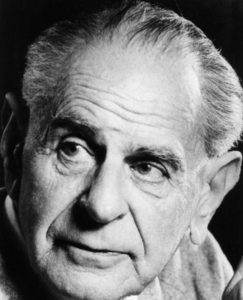
“Optimism is a moral duty, that is what Karl Popper said, and that is part of my life philosphy” said Rik Daems, President of the Council of Europe’s Parliamentary Assembly, quoting the Austrian-British philosopher Popper, when I asked him to look ahead to 2022. “Hopeful or worried? I am optimistic that we can reverse some of the negative trends that we see and that we can fortify positive ones. If that is being hopeful, OK. Am I being worried to a certain extent? Obviously, aren’t we all? For a start, we’re worried about the whole pandemic situation which has got a terrible effect on our daily life, and it forces the executive branch and even the parliamentary branch of any country in the world, and, as a matter of fact in all the Council of Europe member states, to take measures that, the longer it takes, the more worried the citizens are, also. So yeah, I’m worried about that, and then if you go into a certain trend you see that a number of countries are, like, leaving the international logic and getting into a national logic, that would probably be my biggest worry.”
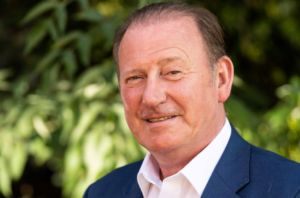
We’ll come back to that point. Of course, everything looks better when the economy is thriving but concerns about the future, especially regarding the ongoing pandemic, tend to dampen it down. In its Global Economic Survey for 2022, Euro Chambers warns that the continuing pandemic is still having a dire effect. The Chair of the Global Chamber Platform, Christopher Leitl, makes it clear where the blame should lie. “We see business confidence rising for most of the world’s regions,” he wrote, “but COVID-19 and supply chain bottlenecks remain serious impediments to a strong global economic recovery. Governments must not let down their guard and continue supporting businesses through policies that enhance innovation and competitiveness, while rejecting protectionist measures that stifle trade flows and foreign investment.”
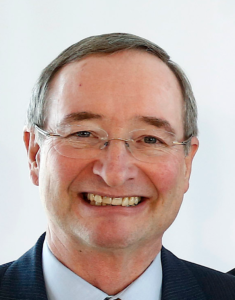
No-one knows how long the pandemic will last, especially with its new and highly infectious (it seems) omicron variant. The 14th century’s infamous Black Death, for instance, continued returning for years. Caused by the bacterium yersinia pestis, it first struck in Mongolia in 1346, reaching Europe the following year. It finally started to fade in the 1350s but never went away entirely, killing an estimated 200-million people, almost 50% of Europe’s population in all. What a lot we have to look forward to. At least the SARS-CoV-2 virus is neither quite as unpleasant in the way it kills, nor quite so deadly. And we know much more these days, of course.
KILLING BUGS
“Combatting the pandemic,” said Irish Fine Gael MP Seán Kelly, “is only temporary. Combatting climate change is long term, and for that reason it will be incumbent on governments to, first of all, be ambitious and to explain the need for the actions that have to be taken so that people can look in the long term, rather than the short term. Also, there will be need for legislation, something similar to what we have for Covid, so that we can compel bodies to reduce emissions, and the message has to get out there to all sectors, all industries, indeed, every individual.” Knowing something is basically good for us, sadly, doesn’t always guarantee popular support for the measure, as the many protests around Europe have shown. In Austria, for instance, crowds 40,000 strong waved banners with such slogans as “Make Austria great again” and “I will decide for myself”. What the SARS-CoV-2 virus decides seems not to enter into their thinking. The protests were largely organised by Austria’s far right Freedom Party, whose leader, Herbert Kickl, is not the first Austrian to urge civil disobedience and violence against those who don’t agree with his views. I believe it’s fair to say that more people share Seán Kelly’s view than that of the Austrian far right.
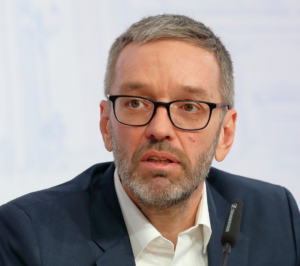
Some of the banners displayed the letter “Q”, in the colours of the US flag. “Q” represents a far-right American conspiracy theory group, normally referred to as ‘QAnon’, which is seemingly headed by a chap with a beard who wears horns on his head. The group, made up of a bizarre and eclectic collection of individuals, claims that various anonymous people have formed themselves into a satanic cabal of paedophiles and cannibals (yes, really; some folk will believe anything) that also ran a child sex trafficking ring and conspired against Donald Trump when he was President, thus causing his electoral defeat. It was the “Q” supporters who attacked the Capitol Building in Washington on 6 January, 2021, leaving five people dead (the final number is disputed and could be higher). Now the QAnon movement has spread to Austria; lunacy recognises no borders, it seems. At the Council of Europe, meanwhile, there is more concern about climate change and pollution than about the risk of imaginary cannibal paedophiles. For delegates, the environment matters rather more. “The Assembly has always endeavoured to promote environmental protection and to promote the role of the Council of Europe,” says its website, “responsible, inter alia, for drawing up the Convention on the Protection of the Environment through Criminal Law (ETS No. 172, 1998) and the Convention on Civil Liability for Damage Resulting from Activities Dangerous to the Environment (ETS No. 150, 1993). Therefore, it is disappointed that these two conventions have not attracted the number of ratifications necessary to enter into force.”
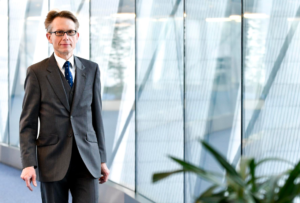
Doctor Gunnar Beck, a German MEP from the right-leaning Alternative für Deutschland party, is no fan of the European Union, which he accuses of responding too slowly to the Covid pandemic, among other things, and he understands the protests against further restrictions. He believes that Europe is now seeing an over-reaction in terms of measures aimed at ensuring a greater take-up of vaccines; vaccines, moreover, in which he has little faith anyway. “I think it’s got to be proportionate. There are certain rights that must not be abridged and ought not to be restricted,” he told me. “I think the EU is absolutely desperate because it can’t control things, and now for this time we have fears, with certain restrictions in order to control the epidemic or virus wave, and there are certain things that mustn’t be done.” Beck understands the growing opposition to lock-downs, whilst acknowledging that governments must try to restrict the spread of the virus. “You can’t prevent people from work, nor should you force people to vaccinate. But we do know from Far Eastern countries that there are certain measures that work: closing borders, as far as possible; at least giving people the option of home offices. All these are reasonable options. If you want to, also wearing masks in certain places. So, I think one has got to keep a balance, but this discrimination between the vaccinated and the unvaccinated has to stop, because we now know that vaccines are a lot less effective than was thought, although I’m not saying they are useless, or even worse than useless. I’m not saying that; I’m merely saying that they’re a lot less effective than we first thought.” He says they do not justify what he referred to as “massive discrimination against the unvaccinated”.
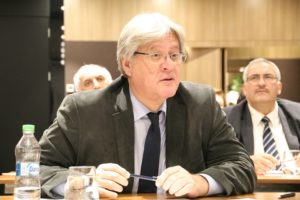
Not everyone shares Beck’s opinion of the available vaccines but there are certainly those keen to protect our rights and freedoms. “We have to be careful because the civil rights are in danger,” warned Professor Stefan Schennach, a Socialist member of the Austrian Parliament, “and whatever we are doing to fight against the pandemic, we should never forget that when we take away civil rights we have to bring the civil rights back, and I’m very worried that some countries are not taking so much care over civil rights and human rights, and it’s understandable that for a short period, if necessary, you limit civil rights, but any measures you set up need an ending, so that after the fight against the pandemic, the full civil rights are back in force.”
LOOK UP; LOOK OUT!
The Covid pandemic is not the only thing that we face in 2022, but there’s little point in rehearsing all the terrible events that might – and I stress “might” – occur. Dutch Socialist Tiny Kox prefers to look on the bright side. “Fear is realistic but it’s also not very productive,” he told me. “If you fear, then it’s better to go and lie in your bed and wait until you die, and if you have hope you get out of your bed and you see what you can do.” Kox is an optimist but not an unrealistic one. “There are a lot of worrying developments, of course; developments that we identified in our report on the strategic priorities of the Council of Europe. That is more of a question of what things could endanger our future, and where we should put our priorities in order to avoid that danger becoming a reality. There, too, we also give a hopeful signal about what we can do about that future to prevent the fear becoming a reality.”
So far, we’ve been doing alright – sort of. At least, that’s the view of Finnish parliamentarian Inka Hopsu of the Green League. “I think the European Union has worked pretty well for a long time,” she told me when I asked if getting countries to work together was becoming more difficult. “The European Union’s main goal is to have peace in Europe and also to have secure situation also for economic matters, which we have had after the Second World War, so I think everything was successful, but we have new challenges now, with migration issues, with the climate change, and the question is: is the EU strong enough to respond to these? That’s the question now, but I hope we can strongly support the EU and find the solutions, and I’m happy that in the climate negotiations, the EU has been the one which is leading and giving those responses.” It’s an encouraging thought and one that could set the tone for the future if we let it.
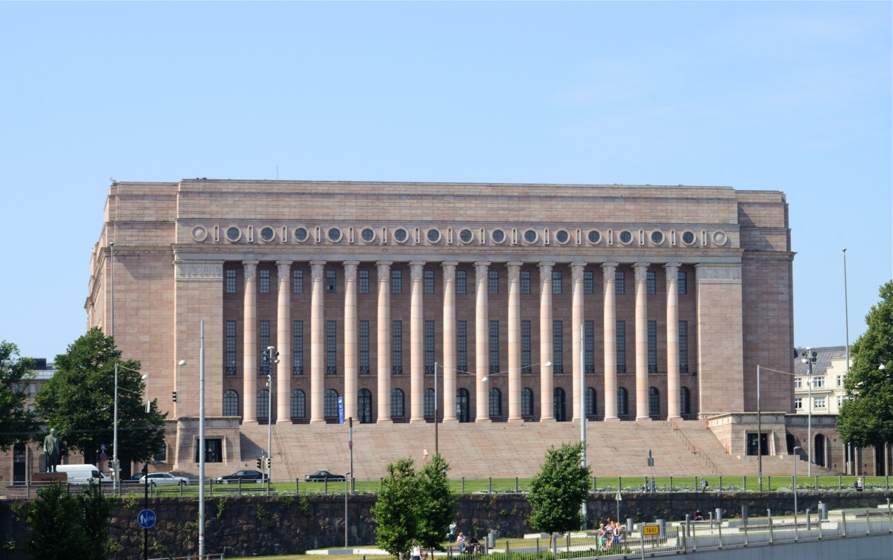
Gunnar Beck of the right-wing German party Alternative für Deutschland, seems less confident that the EU represents the future. “Let’s bear in mind that the EU is very quick to blame others for its own misfortunes,” he told me. “Take the recent hike in gas prices. The most obvious reasons are the EU’s own climate change policies, like the reduction in gas drilling in the North Sea. They can’t admit it. Also, they’ve moved from long-term supply arrangements to spot trading. All of these are the real reasons for the recent hike in gas prices. The EU talks about the wind not blowing enough in the first half of this year, and, of course, they blame Putin, but there is evidence that Mr. Putin has increased gas supplies. And who is responsible for delaying the inauguration of Nord Stream II? The German bureaucracy and resistance to Nord Stream II within the EU, perhaps American pressure. It has nothing to do with President Putin; he’s very keen to launch Nord Stream II.”
That is not the reason that the United Kingdom decided to leave the EU and plough its own furrow. That had more to do with innate nationalism and what often appears in its tabloid press as simple xenophobia. “Brexit was really just the first step that had to be achieved for so many other things,” said Saj Karim, once a Conservative MEP but no longer linked to that party. “The other thing that those core ‘Brexiteers’ are working towards is for the UK to leave the Council of Europe and to leave the ECHR (European Court of Human Rights), which is where these rights reside.” Rik Daems doesn’t share that fear. “We’ve been in the UK just last week and that is exactly the opposite of what I heard,” he reassured me. “There is a concern though that they say, yeah, at one point in time, we believe that our own constitution, what have you, does not conform with the European Convention, but then at the end of the day, the European Convention is a sort of constitution, so if you ratify it you should adhere to it. If there are issues that need to be addressed, I would be the first to say: ‘let’s address them’, I mean why run away from it?”
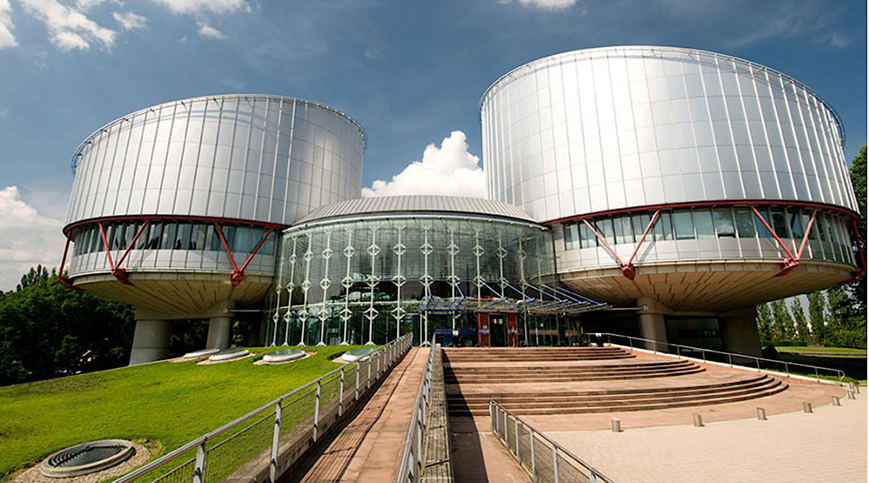
We shouldn’t forget that, whatever the extreme Brexiteers may think, it was Britain that created the Council of Europe with the Treaty of London, signed in May 1949. It united Belgium, France, Denmark, Italy, Ireland, the Netherlands, Luxembourg, Norway, Sweden and, of course, the UK. It was, in part, to pull the rug from beneath moves towards closer European union than the Attlee government favoured, I was once told by Dirk Spierenburg, one-time member of the High Authority, the fore-runner of the European Commission. It was Spierenburg who co-wrote a book with Raymond Poidevin that explains the early years of the European Coal and Steel Community that would eventually develop into the European Union. I took on the long, slow job of rewriting into snappy prose the not very easy-to-read English translation in 1989. It took a year, more or less, and kept my weekends busy. The book was called “The History of the High Authority of the European Coal and Steel Community – Supranationality in Operation”. Not the snappiest title I’ve encountered but interestingly detailed and, as it turned out, a great source of information that has proved enormously useful to me over many years. My work in rewriting the translation involved regular meetings with Spierenburg to discuss technical points over coffee, and he was a very amusing man to work with. He told me that politicians all over Europe were aware of Robert Schuman’s plan to render war impossible by uniting the production of both coal and steel, which were seen as the basic materials for conflict (Schumann called them ‘the engines of war’).
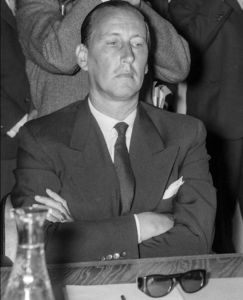
We’d just got over one global conflict and didn’t want another. Spierenburg knew it would be a hard sell to the British and when one of the idea’s keen proponents travelled to London to put it to a government minister, it is said that his outright rejection included the phrase “the Durham miners would never forgive us.” To offer a less powerful option for a union of Europe’s nations that didn’t threaten parliamentary sovereignty, the Council of Europe was born. Karim doesn’t think that fact would sway the Brexiteers. “That means nothing to these people,” he said. “This is my point. People are protesting about the wrong things. The things that they should be protesting about, they’re just accepting and shrugging their shoulders and moving on, but the things that they really ought to be co-operating with and accepting, they’re protesting about, so the whole thing is topsy-turvey.”
This topsy-turvy nature of today’s politics was echoed by Turkish MP Ziya Altunyaldiz of the AK party. “The biggest threat to peace is a global issue,” he told me. “The production and supply of varieties has been changed all round the world.
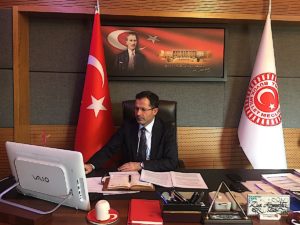
Countries all around the world are trying to take advantage of a sometimes – may I say – upside-down situation, including the pandemic as well. The right thing is, if anything, unbalanced allaround the world. I think that it is going to impact the rest of the world and people or countries will think it is to my advantage and I should take it without consideration of others living around the world and other countries as well. And that’s why whatever you do as individuals or as countries, you have to take many things in practice and supply the right balance to also consider others’ rights to live in it and to take in and to have sustainable living conditions and development all around the world.”
HE’S BEHIND YOU!
So where is the world heading in 2022? And is Europe to play a sufficiently large part in it? “Europe is just not happening, it’s all in our hands,” Polish Socialist MEP, former European Commissioner and political scientist Professor Danuta Hübner believes, “And you know this famous European decision-making through political will and my feeling is that there is a lot of political will to find solutions and to move forward on many fronts, actually, because of the way we reacted to the pandemic. Two years ago, it was clearly a fresh emergency and without the right competences we managed to move, to use all the flexibilities; you remember the taboos that were gone all of a sudden? So, I think we proved that in difficult times we have machinery to move. But what was surprising to me is that they very quicky established the mechanism for the longer term, the whole recovery and such and whole new way to finance it, the new way of approaching economic governance, the co-ordination. So I think a lot has been planned to create a chance for Europe to survive, first of all, and then to move forward, without – and I think this is just as important – giving up on priorities that we established before the pandemic.” So, the world has changed, but Europe remains a very important part – even a very important structure – within it.
Europe is not without its enemies, of course. Indeed, democracy could be said to be not without its enemies. Take the Russian President, Vladimir Putin, for instance, who seems to be no fan of nations linking together for mutual advantage – unless he’s in charge. “I would say that fundamentally, Putin is a revisionist,” said Reinhard Bütikofer, an German MEP from the Greens and European Free Alliance group, who detects personal ambition in Putin. “He once said that the greatest geopolitical tragedy of the 20th century was the dissolution of the Soviet Union, and if you look at his policies through that prism, it makes sense. He denies the Ukrainian people the right to determine their own future.
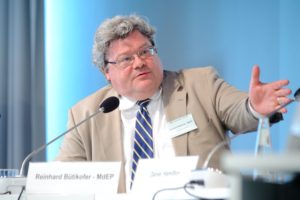
He displays the same attitude vis-à-vis Belarus, and to some extent also the Baltic countries. So I think he really wants to reverse the setting free of nations that used to be under the Russian heel, and on the other hand he’s a pretty good poker player: whenever he sees an opportunity of taking some advantage of something for a low price, he will probably go for it. He’s not the ultimate gambler. He doesn’t run an incalculable risk, so there are ways to deter him by standing fast together, but whenever we let our partners in Eastern Europe down, whenever we don’t show the necessary level of solidarity, chances are that Putin might take advantage of that.” That fear is shared by British Conservative Member of Parliament Neil Parish. “I think peace and stability in the world have a lot to do with the Russians in particular, what they’re doing on the eastern borders of Europe, what they’re doing in Ukraine, you know, I think there’s influence in Belarus. So, there are a lot of problems, and that’s the closest to us, and of course the other problems are the Chinese. It’s very difficult to know how to deal with the Chinese, because if you try to beat them metaphorically with a stick, they don’t like it.
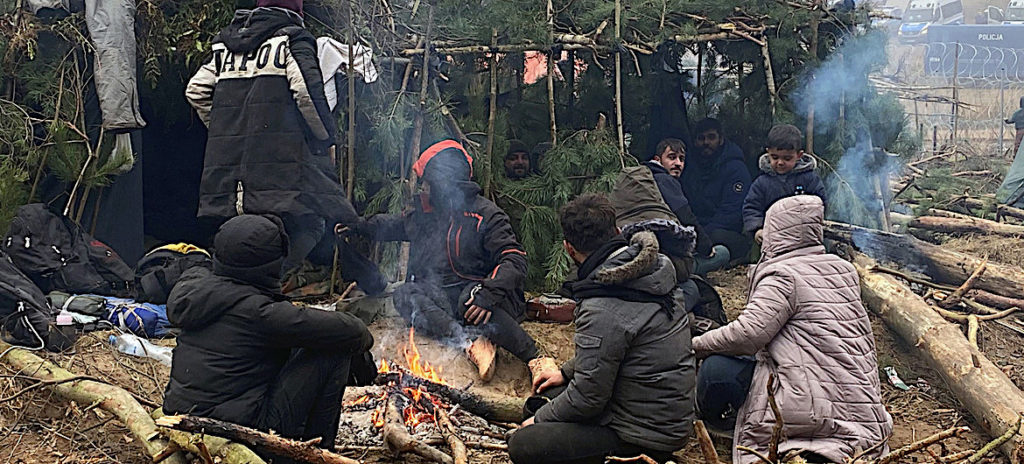
The problem is you can’t really just ignore their behaviour.” For Parish, the Far East is a matter of personal concern. “I have a Japanese daughter-in-law,” he explained, “and I just wonder what’s going to happen vis-à-vis Japan and China eventually, and I think it’s a worrying time for us. I think we need to have our eyes open and I don’t think we should take a too romantic view of the Russians and the Chinese, because Putin is thoroughly dangerous and the Chinese, of course, are just expansionist and they believe in a greater China.” It’s an interesting footnote here that Putin’s enemy, the opposition politician and anti-corruption activist Alexei Anatolievich Navalny, who survived an attempted poisoning and is now in a Russian prison, is being awarded the 2021 Sakharov Prize for Freedom of Thought. I don’t imagine that bothers Putin one tiny bit but at least it’s a symbolic gesture.
INSIDE AND OUTSIDE THE BORDER
The world is not entirely made up of nation states working within their own borders. Some people do not have, may never have had, borders they can call their own. Take the Roma and Sinti people, for instance among others, who get pushed to the edge of things and have to eke out their existence without many of the amenities we take for granted. I have visited a number of Roma communities and unless you had seen them too you would find it hard to believe the sort of squalor in which they are expected to live in our modern Europe. In one case, a rotting apartment building with crumbling internal steps and with no running water looked out over a massive garbage pile, running with rats. One Romanian Roma woman who obtained her qualifications through a Fulbright scholarship at Vanderbilt University, New York, set up and now runs an educational organisation called Link Education and Practice, or LEAP, to help members of minorities to become more employable
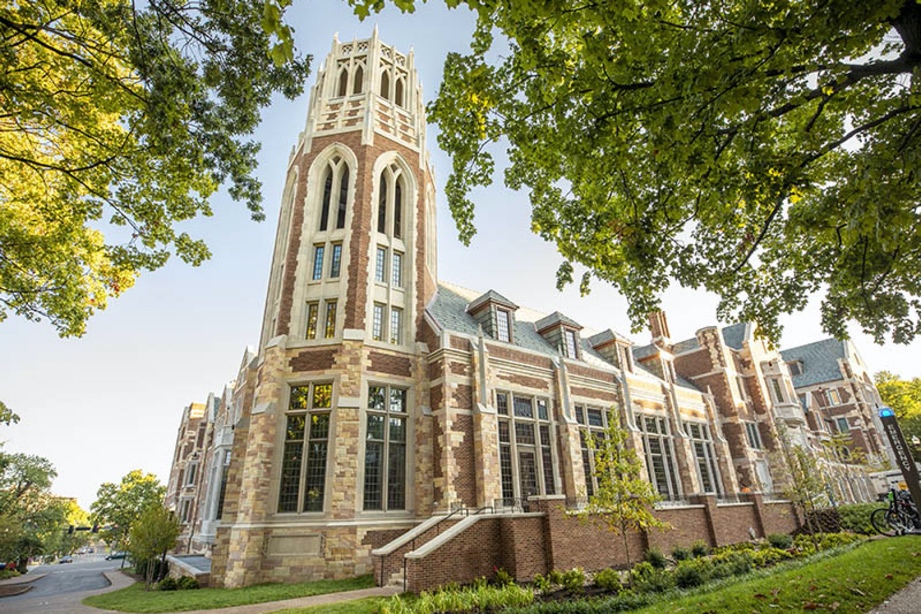
“Through the lens of my work on Roma rights,” Cristiana Grigore told me, “and the Roma narrative, I see that this is the case, not only that the Roma are stereotyped and there are so many prejudices against us, but that’s the case with so many other groups, and that’s also the case with us: how we look at the wealthy and privileged. In the United States there is a whole narrative about what they do and how they do things, so I think that finding ways to understand the human side and it’s important not to demonise any group and to understand the context and the factors.”
Meanwhile, what of the alleged seekers after a life outside the European Union? We’ve heard of ‘Polexit’ or ‘Hungeroff’, but are these realistic scenarios? Brendan Donnelly, director of the Federal Trust, thinks the chances of the EU breaking up have been over-stated. “Well, I don’t think that either of them actually want to leave the European Union, Poland for more edifying reasons, but Hungary, as well, there is a sense of ‘European-ness’, of European identity, in contrast with what was inflicted on them by the Soviet Union. But in the case of Hungary in particular, there’s the sense of financial dependence on the European Union, which I think will stay the hand of the government. It will always push as far as it can and take what is necessary in the way of steps to remain within the European Union.”
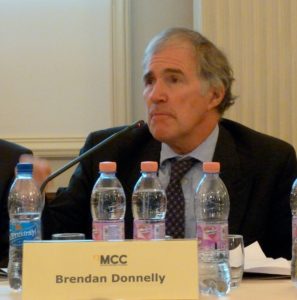
Donnelly, without knowing it, is endorsing the New Year message of Rik Daems to the member states of the Council of Europe, but also to all political associations of countries and groups of countries, wherever in the world they may be. “My message to the world,” he told me, “would be: talk to each other, find solutions to the problems that might arise, and to say, in another way, what is the definition of a problem? It is defined by its solution and if you cannot find a solution, then you have a situation that you have to live by, but I rather think you’ll have the other one!” The 13th century Persian poet, Jalāl ad-Dīn Mohammad Rūmī, once wrote about arguments: “Raise your words, not your voice. It is rain that grows flowers, not thunder.” Never was truer word spoken.
The title I have chosen for this article comes, not from Rumi, as he’s most often known, but from William Shakespeare’s Troilus and Cressida, which is one of his lesser-performed plays. The quotation seems to ft, however, our somewhat uncertain emergence into the New Year of 2022:
“Time is like a fashionable host
That slightly shakes his parting guest by the hand,
And with his arms outstretched, as he would fly,
Grasps in the comer: welcome ever smiles,
And farewell goes out sighing.”
Fingers crossed, eh?
Jim Gibbons
A message from Jim Gibbons
I would like to thank all the people who found time in their busy schedules to face an on-line interview with me. The interviews were conducted over a period of about four weeks, starting in early December 2021. I hope they feel I have done justice to their replies to my questions. Thank you all for your patience. They are (in no special order):
Gunnar Beck, a German ME P of the Alternative für Deutschland party;
Professor Stefan Schennach from Austria, who sits with the Socialists, Democrats and Greens Group in the Council of Europe’s Parliamentary Assembly;
Ireland’s Seán Kelly, a Fine Gael member of the European Parliament, sitting with the European People’s Party (EPP);
Tiny Kox, a Dutch member of the Socialist Party in the Netherlands and the party’s leader in the Senate since 2003;
Brendan Donnelly, Director of Britain’s pro-EU Federal Trust;
Cristiana Grigore, a Romanian woman who now runs the Roma People’s Project at Columbia University in New York;
Professor Danuta Hübner, a former EU Commissioner for Regional Policy, now representing Poland’s centre-right Civic Platform Party in the European People’s Party group at the European Parliament;
Britain’s Sajjad Karim, a former Conservative member of the European Parliament and the first British Muslim to be elected;
Reinhard Bütikofer, a German Green member of the European Parliament and Chair of its Delegation for Relations with the People’s Republic of China;
Ziya Altunyaldiz, a member of the Turkish parliament representing the Justice and Development party (AKP), headed by Turkey’s President, Recep Tayyip Erdoğan;
Inka Hopsu, a member of the Finnish parliament representing Finland’s Green League;
Neil Parish, a Conservative member of Parliament in England, a farmer and former member of the European Parliament;
and last but by no means least, Rik Daems, a Belgian Liberal politician and now President of the Parliamentary Assembly of the Council of Europe.
They all deserve my profound thanks and I should like to take this opportunity to wish all of them a splendid 2022, in which their dreams come true and their nightmares most definitely do not.

